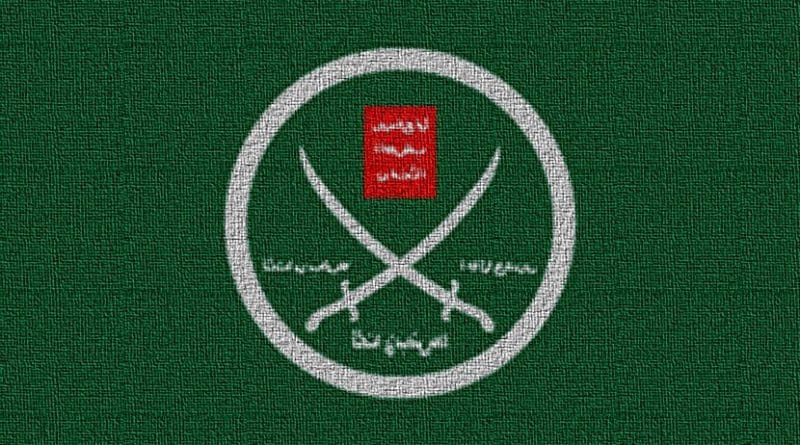Egypt: Investigate Brotherhood’s Abuse Of Protesters, Says HRW
Egypt’s public prosecutor should investigate the detention and abuse of several dozen anti-government protesters in Cairo by Muslim Brotherhood members on December 5 and 6, 2012. At least 49 protesters opposed to President Mohamed Morsy were unlawfully held outside the Ettihadiya presidential palace gate, an area then occupied by the Muslim Brotherhood and overseen by riot police, detainees and witnesses told Human Rights Watch. The detentions followed armed clashes that resulted in the deaths of 10 people, mostly Muslim Brotherhood members, and injuries to 748 more, according to the Health Ministry.
The prosecutor should examine responsibility for the deaths and injuries to protesters, as well as the failure of security forces to intervene to protect a peaceful sit-in by anti-Morsy protesters and to stop the violence by both Morsy supporters and anti-Morsy protesters. He should also investigate Freedom and Justice Party (FJP) leaders who publicly called for their supporters to arrest anti-Morsy protesters.
A speech by Morsy on December 6 in which he referred to “confessions” of detained protesters as evidence that they were “hired thugs” raises concerns for their due process rights and suggests that the authorities were aware of the illegal detentions outside the presidential palace. The secretary of the president on foreign affairs, Eng. Khaled Al Qazzaz, told Human Rights Watch that the president was not aware of the detention of the 49 individuals at the time and that this was currently being investigated along with reported deaths and injuries.
“Instead of condemning illegal detentions and abuse right outside the presidential palace, President Morsi spoke out against the victims,” said Joe Stork, deputy Middle East and North Africa director at Human Rights Watch. “The prosecutor’s response in this high-profile case, namely his willingness to investigate violence by both sides and the role of state officials, is crucial for upholding the rule of law during this tense time.”
On the afternoon of December 5, hundreds of Muslim Brotherhood members and supporters marched to the presidential palace in response to several days of protests by opponents of Morsy’s November 22 Constitutional Declaration, which granted the president broad powers. They were joined by the Brotherhood’s Freedom and Justice Party, whose leaders called on their members to participate in the protest. Brotherhood and FJP supporters then broke up a sit-in of several dozen anti-Morsy protesters, tearing down their tents and rifling through their possessions, according to witnesses and video footage.
Over the next 12 hours, violence between Morsy supporters and anti-Morsy protesters escalated as first stones and then Molotov cocktails, rubber pellet rifles, and handguns were used by both sides. Central Security Forces, Egypt’s riot police, and other security forces stationed nearby, including the presidential guard and military police, made no serious effort to halt the violence. Al Qazzaz told Human Rights Watch that the president had given “instructions to the security services to exercise restraint and avoid use of excessive force and to withdraw if needed to avoid casualties.”
“The Egyptian authorities have a responsibility to ensure that the police uphold and protect the right to peaceful protest,” Stork said. “The public prosecutor should promptly and impartially investigate the deaths resulting from the clashes and the failure of security forces to prevent the break-up of the peaceful sit-in and stop the ensuing violence.”
During the clashes on the evening of December 5, FJP Deputy Secretary Essam al-Erian gave a live television interview, saying, “Everyone must go now to Ettihadiya and surround the thugs and separate the real revolutionaries out for one or two nights and then we can arrest them all.” Similar calls were made over social media. Soon after, Morsy supporters began apprehending and detaining the anti-Morsy protesters.
Alleged Muslim Brotherhood and FJP members and supporters took 49 anti-Morsy protesters to a makeshift detention center at the Ettihadiya gate. They were beaten and otherwise mistreated on the way and at the detention site. A police report filed by the Masr Gedida police station obtained by human rights lawyer Taher Abul Nasr records that “youth from the Freedom and Justice Party handed the detainees over to the station.” After their release, five of the protesters described to Human Rights Watch how they were abducted, detained, and ill-treated, while lawyers and family members discussed their efforts to locate them and obtain their release.
“The most painful beating happened on my way here because when people saw I was captured they’d reach out and hit me,” said Mohamed Omar, an engineer. “But when I was handcuffed I was still kicked in the back and hit on the head. They called me a thug, accused me of being paid by opposition leaders.”
The police took into custody at least another 92 people on the night of December 5. The next day the 49 held at Ettihadiya were turned over to the prosecutors. The prosecutors soon released 133 without charge for lack of evidence and 4 because they were minors. Four remained detained as of December 10. Lawyers representing the detainees told Human Rights Watch that prosecutors had ordered the referral of 95 detainees to forensic medical doctors for examination, a step indicating that physical abuse may have occurred.
Statements by President Morsy suggest he may have been aware of the unlawful detention of the anti-Morsy protesters outside the presidential palace, Human Rights Watch said. On the evening of December 6, Morsy announced in a nationally televised speech that “the confessions of those arrested and the interrogations show” that the detainees had been paid and incited to “use weapons.” Egyptian journalist Mohamed el Garhy managed to access the detention center as a photographer and told Human Rights Watch that “whenever they brought in a new detainee they would call over the TV journalist to film a ‘confession’ and interrogate the detainee.” Muslim Brotherhood chief lawyer Abdel Monim Abdel Maqsud told Human Rights Watch that the identity of those detaining the group was unknown.

